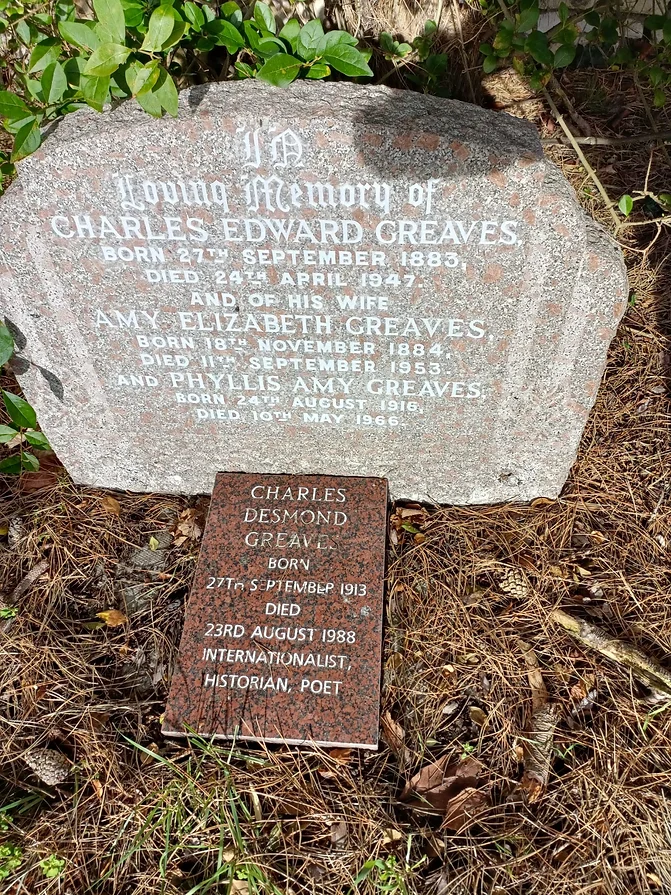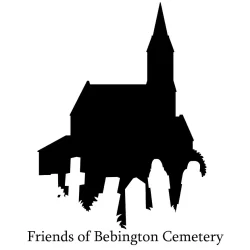Charles Desmond Greaves

Charles Desmond Greaves
Charles Desmond Greaves (1913–88), political activist and labour historian, was born 27 September 1913 at 7A Rockville Street, Birkenhead, Wirral, son of Charles Edward Greaves, post office official and Amy Elisabeth Greaves (née Taylor) both Methodists, of mixed English, Irish, and Welsh background.
Greaves graduated in chemistry and botany at Liverpool University, where he became active in left-wing politics. Politically he was always more interested in issues of nationality and imperialism than of socialism.
In 1941 he joined the Connolly Club, later the Connolly Association, which sought to organise the Irish immigrants who were streaming into Britain’s wartime industries by urging them to join trade unions and to bring their influence to bear on British politics. In 1948, he became editor of the Connolly Association’s monthly newspaper, the Irish Democrat, and remained so till his death.
His commitment and that of the Connolly Asssociation was to the cause of a united independent Ireland, to be achieved by making the ending of partition the policy of the British labour movement.
In the 1950s, as the guiding political brain of the association, Greaves argued that the way to a peaceful solution of the partition problem was to discredit Ulster unionism in Britain through exposing the discriminatory practices occurring under the Stormont regime, in the process winning sympathetic allies for the cause of Irish reunification. This perspective was embodied in the new constitution he drafted for the Connolly Association in 1955.
There is good reason to regard Greaves as the intellectual progenitor of the 1960s civil rights movement. He pioneered the idea of a civil rights campaign as the way to undermine Ulster unionism and he had considerable personal influence on leading figures of that campaign.
Greaves’s principal contribution to labour history was The life and times of James Connolly (1961). He had the advantage of meeting many who had known Connolly (qv) personally, and established that Connolly’s birthplace was Edinburgh. His Liam Mellows and the Irish revolution (1971) dealt with the complex social dynamics and class relations of the revolutionary period 1916–23. His study of Anglo–Irish relations and the background to the civil rights movement, The Irish crisis (1972), was translated into Russian, Hungarian, and Italian. In 1979 he wrote Sean O’Casey, politics and art. The executive of Ireland’s largest trade union commissioned him to write its history, which led to The Irish Transport and General Workers Union: the formative years (1982). He wrote numerous pamphlets, countless articles, and three volumes of poetry.
Scientist, historian, poet, musician, political organiser, orator, journalist, wit, excellent cook, and dedicated gardener, Desmond Greaves was an extraordinary man, whose genius confidently spanned C. P. Snow’s ‘two cultures’. He left a voluminous journal and extensive research records, for deposit in the NLI. He never married. After the death of his only sibling and younger sister, Phyllis, he lived in his family home in Birkenhead in later life. He died suddenly 23 August 1988 returning to Liverpool from a political meeting in Glasgow, his body being taken off the train at Preston, Lancs. The Desmond Greaves Summer School, held in Dublin in August each year, was instituted by his friends in his memory.
Sources
A. Coughlan, C. Desmond Greaves, 1913–1988: an obituary essay (1991) (detailed bibliog.); S. Redmond, Desmond Greaves and the origins of the civil rights movement in Northern Ireland (1999); personal knowledge
